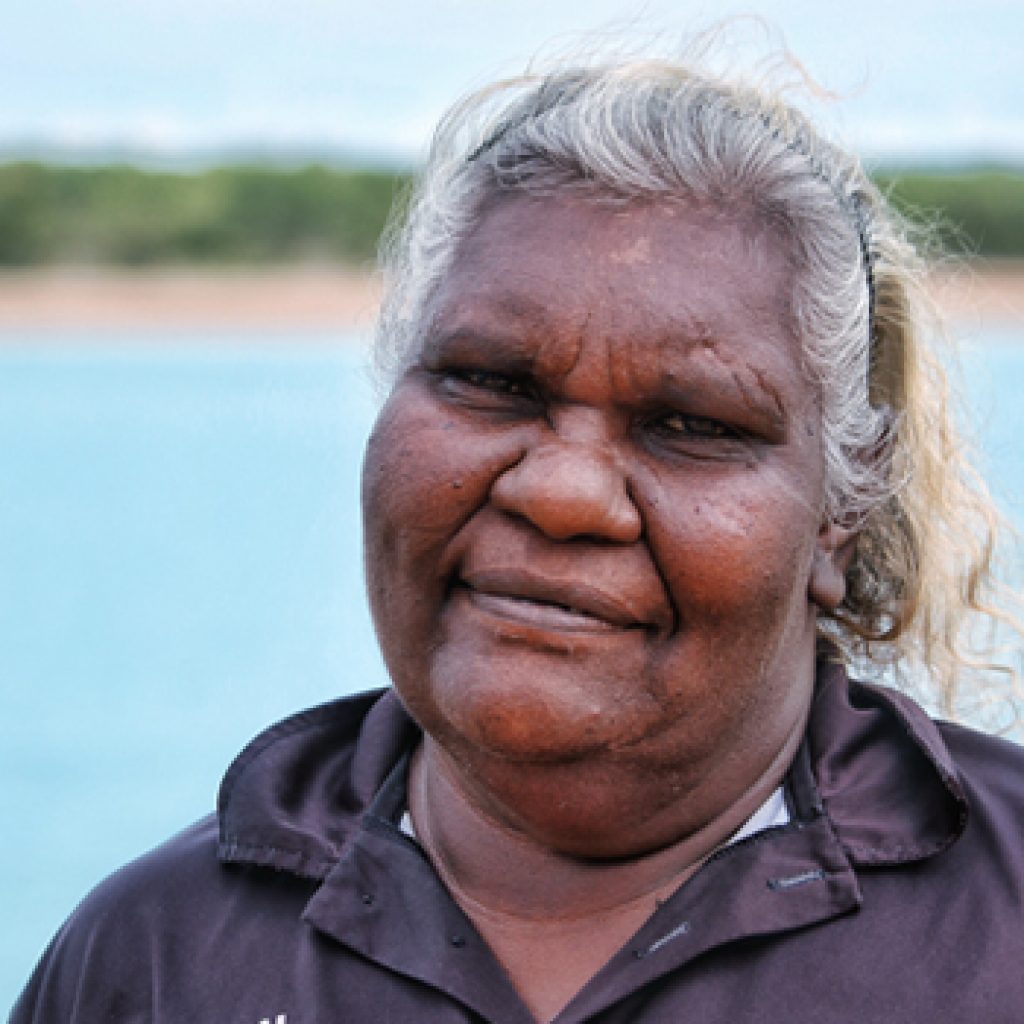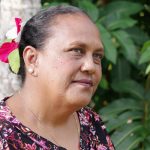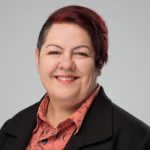
If I can help even just one person today, then I’ve made a difference, and that person might then have the strength to help someone else as well.
Roanna was nominated by Mission Australia in Mornington Island because she goes above and beyond her role when it comes to advocating for the rights of their women, educating them on self-empowerment, and treating their clients with respect and dignity.
Roanna is a proud Lardil and Yangkaal woman who love helping the women across her community.
Her nominator said Roanna is a role model for Aboriginal women, and is living proof that if they want to make a change, then they can. She understands what it means to be homelessness and to lose her family to Child Safety.
Roanna is a staff member of the Mornington Island Women Shelter under Mission Australia, and has worked there for 6 years as a Support Worker.
I was born in Mount Isa and grew up in Mornington Island. My Step-Dad was the provider for our family and worked hard to make sure we had enough growing up.
At the age of 13, I started High school in Mt Isa and lived there for a large part of my life.
I am fairly new to the community services sector, having spent my working life as a Bank Teller, Receptionist, and Librarian.
I have 2 beautiful daughters, Sarah and Ashlyn and two grandchildren, with another on the way in October.
I am a Support Worker for the Mornington Island Women’s Shelter, and love working with ladies across the community. I feel that I connect with these ladies as I have my own experience with alcohol abuse and Domestic and Family Violence.
When I was an adult in Mt Isa, I was not well and my health had deteriorated from drinking. It was actually my eldest Daughter, Sarah, who encouraged me to move back to Mornington Island to get better.
Once I got back to my community, I was able to get well and decided that I wanted to support other Aboriginal and Torres Strait Islander women – especially those who were dealing with alcohol issues.
I find one of the best ways I can help women is through early intervention. I try and get them away from the drink and into the bush near my family’s waystation. A lot of these women have alcohol issues and have been through Domestic and Family Violence, so being able to take a break from that and get out to nature is a powerful experience for these ladies. I also open my home as a safe place for women and their kids if they need somewhere to stay.
I do all of this as I guess in one way or another, all of these people are related to me, so they’re my family.
I love my work with Mission Australia and get a lot of support from my colleague, Farrah. My role there often makes me contemplate my own life and work, and Farrah inspires me to reflect on the question:
Can I do more for my community?

How important is culture and NAIDOC week to you?
It’s really important to me and was a big part of my life growing up. I was actually one of the first children on the dance tour in the 1980s though the Woomera Aboriginal Corporation.
I think NAIDOC Week is a good time to reflect and celebrate our culture, and I really try hard to get culture back into our community.
As someone who works in community services in Mornington Island, we’re fighting a war against alcoholism and drug addiction. But I really believe that we also need to win the fight within ourselves before we’re able to help others.
Were there any women you inspired you in your life?
There were two women in my life who I can say were big influences on my life.
In the 1970s, Aunty Juno Gemes was a white lady and a local photographer. She inspired my love of classical music, art and culture. I actually found her through Facebook later in life as I wanted her to know the impact she had on my life.
Another woman who was hugely influence was Mrs Anna Benjamin, who was our Liaison officer in Mt Isa High School. Mrs Benjamin was an Aboriginal lady and married to Torres Strait Islander.
Mrs Benjamin was very kind to me and helped me a lot during this time. She also really cared about the women in my community. Mrs Benjamin took me under her wing at school and let me stay at her home when I needed a safe place to stay.
She meant a lot to me growing up, but I haven’t been able to track her down to let her know how influential she was in my life.
If you could give a message to Aboriginal and Torres Strait Islander Women (or the wider community) this year, what would it be? Is there anything else that you would like people to know about women in our sector, for NAIDOC Week, or your work / organisation?
It’s important to think positive thoughts and do positive things. Don’t bring yourself down.
I focus on being happy and upbeat with the ladies I work with as that helps them feel comfortable and more likely to seek our help when they need it. Even if I have my own troubles or sadness, I leave all that baggage at the door and approach our clients with enthusiasm and positivity.
If I can help even just one person today, then I’ve made a difference, and that person might then have the strength to help someone else as well.


